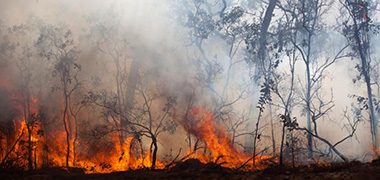
This role has a moderate level of AI exposure. AI can enhance efficiency for some tasks, but this job still relies on human skills and decision-making.
Explore all careersAn Earth Scientist studies the Earth's physical properties and processes, analysing data and collaborating with others to address environmental challenges.
Get qualified to work as an Earth Scientist with a course recognised across Australia. Speak to a training provider to learn more.





Browse occupations related to Earth Scientist



For those seeking to advance their careers in the field of Earth Sciences, the Earth Scientist courses in Queensland offer a robust pathway to specialised knowledge and skills. With four comprehensive courses available, including the Bachelor of Science (Earth Science) and the Bachelor of Environmental Science, learners are well-equipped to tackle complex environmental challenges unique to Queensland’s diverse landscapes.
These advanced Earth Scientist courses are designed for experienced learners who already possess prior qualifications. Programs such as the Bachelor of Science (Environmental Science) and Bachelor of Science (Honours) (Earth Science) provide rigorous academic frameworks that position graduates for various roles within the field. Graduates can explore opportunities in science-focused areas, further opening pathways into lucrative careers.
Students pursuing an Earth Scientist career can also look into related job roles that are integral to the Earth Sciences sector in Queensland. These roles include Geophysicist, Hydrologist, and Geologist, among others. Each of these professions offers unique contributions to fields such as environmental management, resource exploration, and scientific research, essential for Queensland’s economic and ecological sustainability.
In addition to coursework, learners can explore the relevant categories of study, including a comprehensive selection of Science courses and specific Earth Science disciplines tailored for Queensland’s unique geological context. Such an education not only enhances individual career prospects but also contributes significantly to our understanding and stewardship of the natural environment.
With a strong emphasis on practical learning and research, the Earth Scientist courses in Queensland are a vital step for those aspiring to influence their communities positively. Whether you are interested in becoming a Hydrogeologist, Geochemist, or even a Physical Scientist, pursuing education in this area opens numerous doors to fulfilling careers dedicated to understanding and protecting our planet. Explore these pathways today and take the first step towards a meaningful career in Earth Sciences.